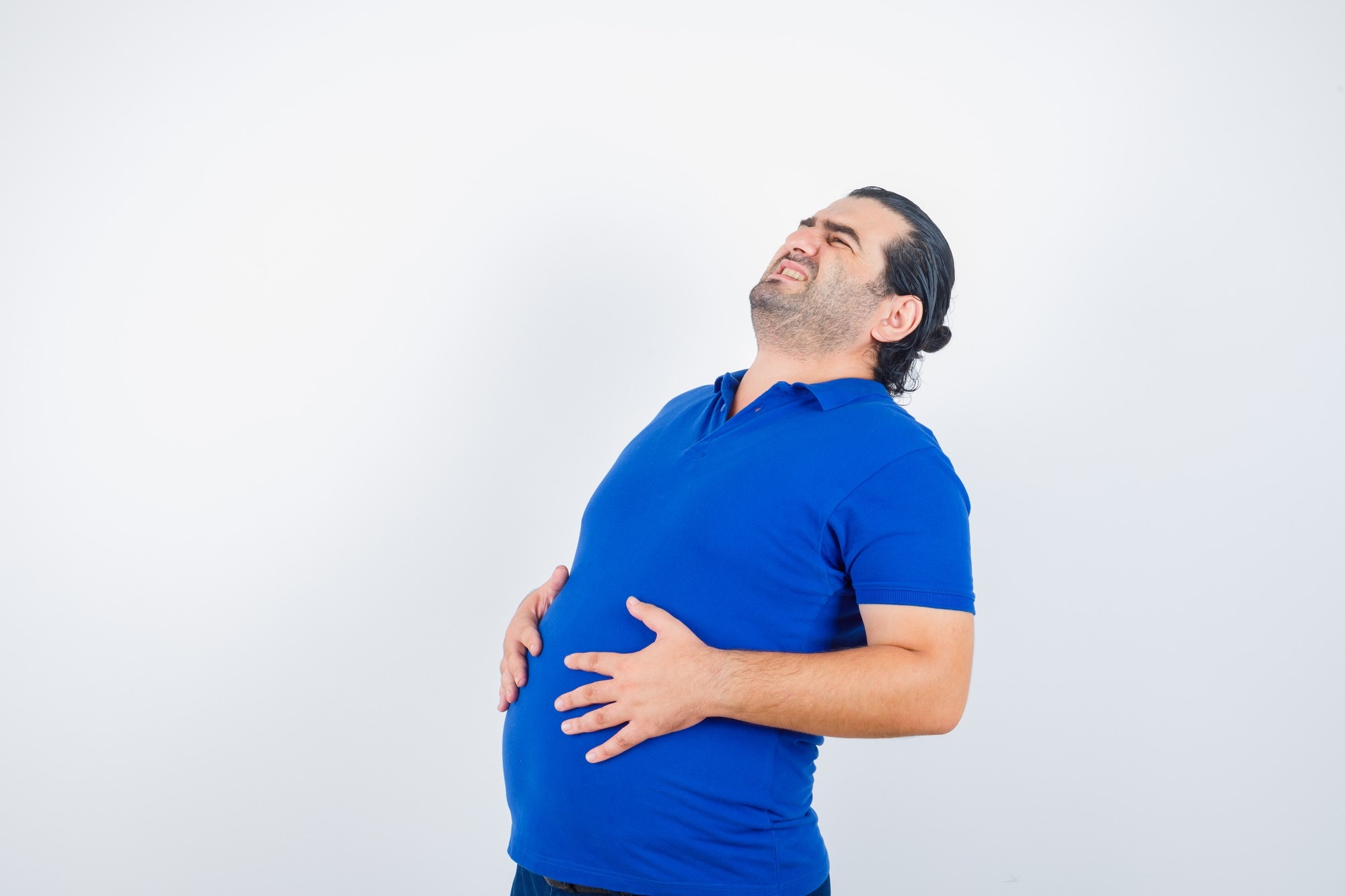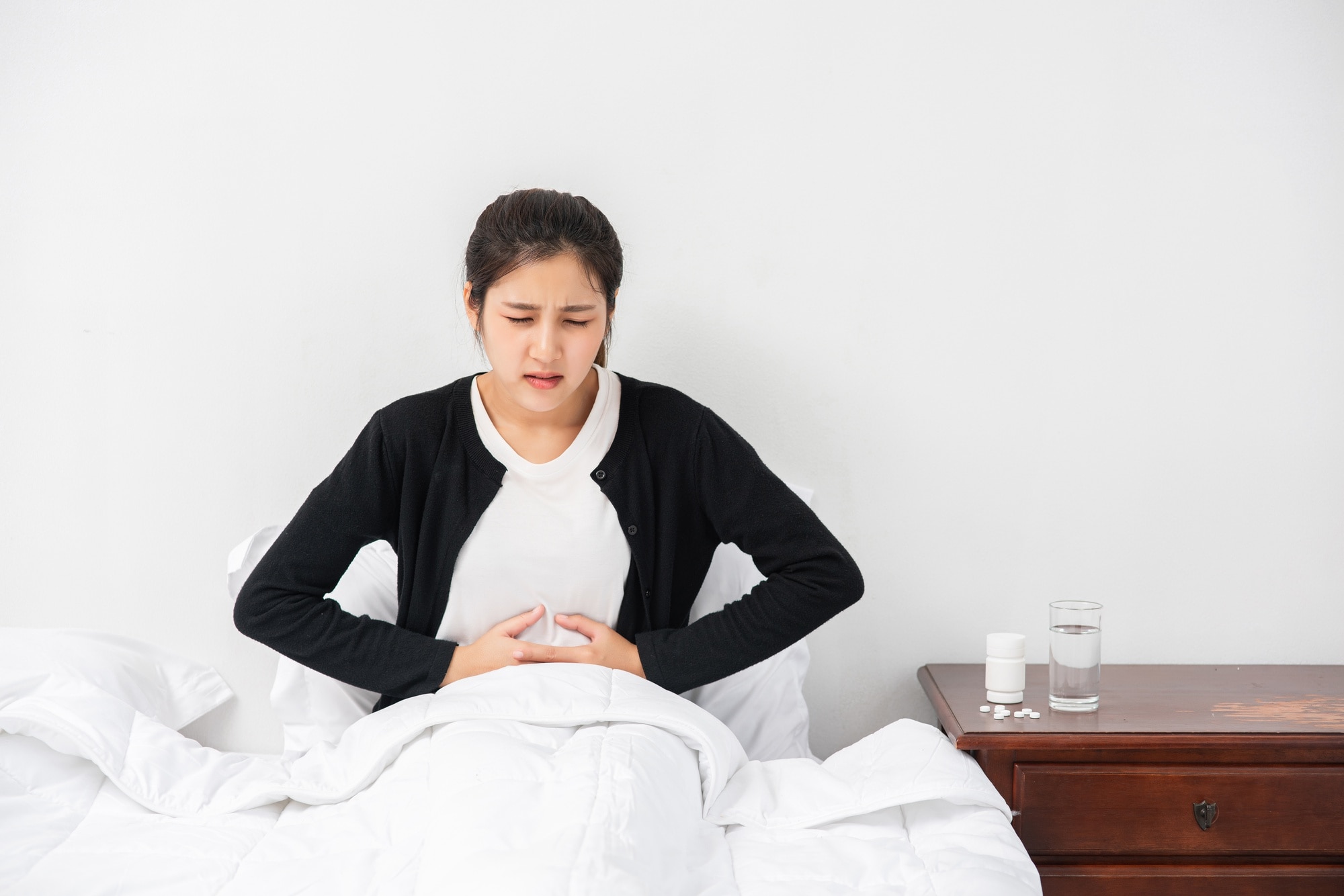I often get questions asking – Luke, what is the easiest and quickest way to feel lighter? I wake up with a puffy face where my stomach and abdomen feel tight. While this settles down towards midday, I regain this bloating and puffiness by evening. I feel fat. What should I do?
I tell most of them – What if you are not fat, but just bloated? Yes, you read that right. Most of us tend to be confused between the two. There is a huge difference between being fat and being bloated. Fat is the accumulation of fat cells in the body due to improper diet, lack of activity, inadequate sleep, and chronic stress. On the other hand, bloating can happen due to an accumulation or build-up of fluids or trapped gasses.

Table of Contents
ToggleWhy does bloating happen?
Why does the body retain water in the first place? The human body is majorly made up of water (almost 75-80%). Water or fluid retention is related to the circulatory system and interstitial spaces between cells or within the tissues. While bloating can be multifactorial, in most cases, one of the leading reasons that can trigger water retention is a poor LIFESTYLE.
Lack of movement
If you find yourself sitting in one place for prolonged periods, you are inviting water retention because of poor circulation and the pooling of blood in a specific area. This is commonly seen in senior citizens who do not move often and thus notice puffiness in their feet, legs, and thighs which fades away even with a few minutes of assisted movement.
Overuse of medicines
Overuse of medication like chemotherapy drugs, beta-blockers, antidepressants, oral contraceptives, nonsteroidal anti-inflammatory drugs (NSAIDs), calcium-channel blockers, and some diabetes medications can lead to water retention as a side effect. While most may be necessary, it’s also important to parallelly work with your doctor to change your lifestyle so that you can gradually taper off medications.
Lack of sleep and hormonal imbalance
Women just around the beginning of their menstrual cycle or pregnancy may also experience water retention because of the sheer drop in estrogen levels and rise in progesterone levels. Sleep can naturally help balance your hormones. Pay attention to the quality and patterns of your sleep.
Emotional health
Yes, you read that right. Chronic stress, emotional imbalance, and emotional internalization can term to an increase in your stress hormone cortisol, which directly influences fluid retention and water weight. There is a reason why cortisol is referred to as the antidiuretic hormone or ADH. So, try to manage your stress.
Exceeding the daily limit of salt intake by eating processed foods
Sodium is an important mineral that tends to bind to water molecules to carry out various bodily processes. The problem occurs when there is too much sodium in food that overrides the in-built mechanism to guard against the effects of excess levels of sodium. Every gram of sodium matters because each gram retains extra water to balance itself as a molecule.
High intake of sugar and other junk foods
Processed carbs spike up sugar levels that our pancreas works hard toward bringing it down by producing more insulin. High insulin levels are directly correlated with retaining more sodium and inturn more water retention.
Medical conditions
Medical conditions like a sluggish liver (alcoholic as well as non-alcoholic fatty liver), poor kidney health, and weak heart health are all linked to water retention too.
Kidney disease
Your kidneys act as sodium-potassium pumps and play a crucial role in maintaining fluid balance in your body. This explains why people with chronic kidney disease (CKD) often experience fluid retention.
Heart failure
If you have congenital heart failure and your heart is unable to pump enough blood through your body, you may experience fluid buildup in your lungs, arms, and legs.
Lymphatic system
Your lymphatic system is the garbage disposal system of your body. It works to drain and get rid of toxins from your body. A well-functioning lymphatic system plays a key role in immune health and fluid balance. Any injury, infections, certain types of cancer, and cancer treatment that affects and clogs your lymphatic system can lead to fluid buildup and swelling.
Obesity
Scientific research links obesity with increased water retention in the core, arms, and legs.
Allergies
Your body is intelligently designed. So when it is exposed to an allergen, in its defense, it releases a compound called histamine. This can cause fluid to leak from your capillaries into the surrounding tissues, leading to short-term swelling and inflammation.
What are some simple ways to beat bloating?
Popping diuretics may seem easy but it can have long-lasting repercussions on your health and compromise your kidney function in the long run. It can also lead to an imbalance in electrolyte levels which are vital to the functioning of your heart, kidney, and liver. If the root cause of your bloating is your lifestyle, here are some simple lifestyle changes you can adopt today.

Move more
Movement aids blood circulation and this intern acts as a natural drainage system. If you work out for just one hour a day and are sedentary for the rest, that one hour has no value. Try to spread your activity throughout the day. Clock your 10,000 steps, do simple stretches, practice Yoga asanas, and practice NEAT which stands for Non-Exercise Activity Thermogenesis activities (read more about it here.) Find every opportunity to move after every hour.
Lay off the salt
A study with 412 participants found that regardless of the diet, high sodium intake increased the risk of bloating. One meal at the restaurant and you end up exceeding your daily salt intake limit i.e. 1 tsp or 2300 mg salt in total and end up feeling bloated, puffy, heavy, and lethargic. At the same time, does this mean you should go salt-free? Absolutely, NOT. Being salt-free can be detrimental to health because sodium is required for various bodily functions like electrolyte balance, maintaining blood volume, and electrical conductivity.
Magnesium
This powerful mineral is responsible for carrying out 300+ enzymatic functions including balancing the right amount of sodium. Nuts, seeds, greens, dry beans, whole grains, legumes, and cacao nibs are some of the best natural sources of magnesium.
Vitamin B6
This is especially for women in their menstrual cycle as it helps maintain the estrogen-progesterone balance. Some rich natural sources of Vitamin B6 include bananas, potatoes, walnuts, and a combination of black sesame seeds and jaggery. This can be beneficial to combat menstruation-related bloating.
Potassium
Potassium also plays a role in balancing excess sodium. Rich sources include bananas, oranges, dried fruits (prunes, raisins, dates), tomatoes, avocados, nuts, and so on.
Drink adequate water
Even a 1% drop in hydration can cause several processes in your body to be thrown out of whack. Dehydration makes our body hold on to water, just like it does with fat. So stay adequately hydrated at all times. Take it a notch up and even add a slice of lemon to it as it is high in potassium and can relieve bloating.
Quick remedies:
Natural foods and drinks like parsley, coriander, hibiscus, dandelion extract, garlic, bell peppers, and so on work as fantastic natural diuretics.
Try this parsley coriander concoction
Take about 250 gm of each and keep boiling them in water till they lose their color. Strain the yellowish liquid and keep sipping on it all day.
Try this anti-bloating tea
Try this barley concoction
Boil 3 tbsp of pearl barley in 3 cups of water. Reduce it to half, and squeeze lemon juice once it cools a bit. Sip and enjoy.
Disclaimer: Please keep your healthcare provider in the loop before introducing any new food item into your lifestyle, especially if you have a medical health condition or are on medications. In case you are allergic to certain foods, please avoid the same.
ALSO WATCH:
RELATED READINGS
5 Natural Ways to Ease Constipation
Indigestion (Dyspepsia): Causes, Tips, and Remedies To Manage It
Luke Coutinho
Luke Coutinho practices in the field of Holistic Nutrition and Integrative and Lifestyle Medicine. He is the pioneer and founder of the You Care Wellness Program which has consulted and treated over 20,000 patients globally. This integrative lifestyle program revolves around five fundamental pillars - Cellular Nutrition, Adequate Exercise, Quality Sleep, Emotional Detox, and the Spirit. It has now stemmed into a beautiful community with over a million people. His free videos, blogs, challenges, and programs have helped people reverse lifestyle conditions, put cancers into remission, and overcome suicidal tendencies to live happier lives. Luke has authored four bestsellers and won several national and international awards. He is the Champion for Lifestyle and Wellness for PM Narendra Modi’s Fit India Movement. He is the founder of India's first ethical wellness platform, You Care Lifestyle, where all things are verified by Luke and his team. He is also the founder and chief program mentor for Integrative Nutrition and Dietetics courses at the Lifeness Science Institute (LSI). He travels the world to speak on holistic wellness and empower people to live their most extraordinary life.
Start Your Wellness Journey
Feeling inspired to take the next step in your wellness journey? Connect with us to explore how our tailored programs can support your health journey. Your transformation is just a conversation away.




